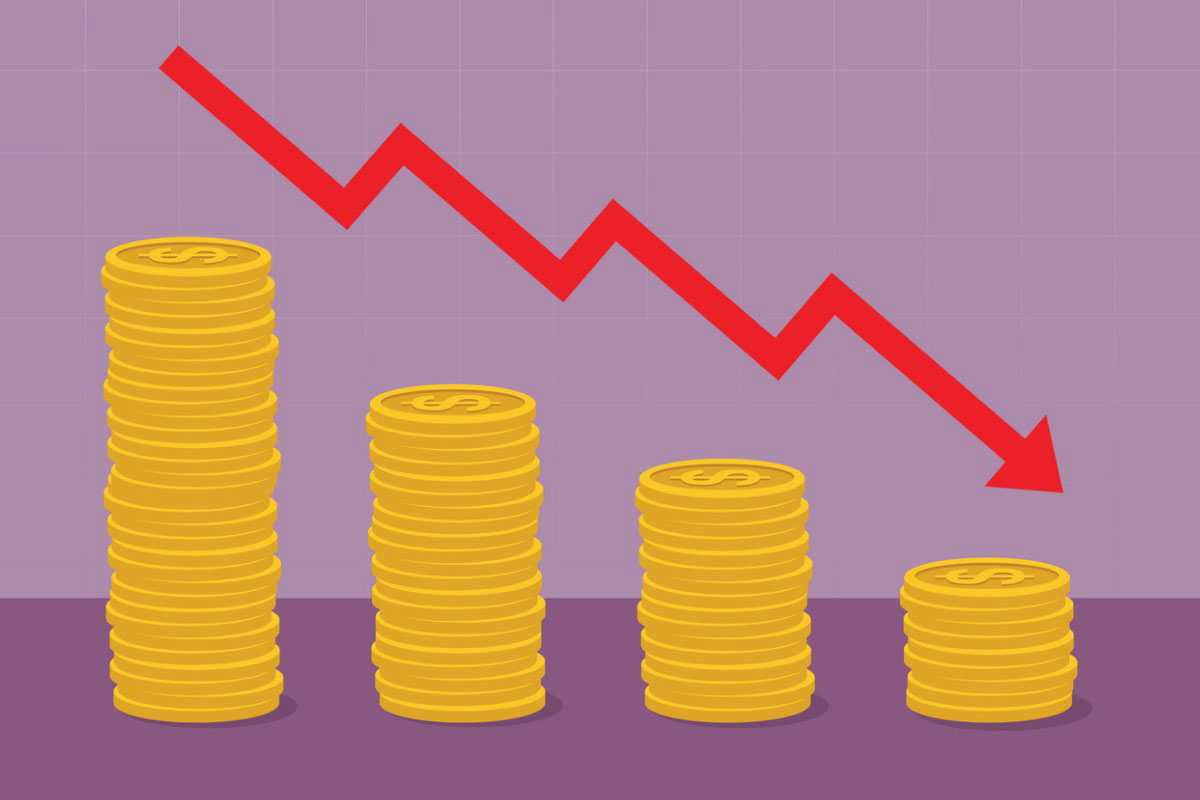Understanding Deflation: Causes, Effects, And Solutions
Deflation is an economic term that signifies a decrease in the general price level of goods and services. While inflation is often discussed in the media, deflation can be just as harmful, if not more so, to an economy. This article will explore the various aspects of deflation, including its causes, effects, and potential solutions. By understanding this phenomenon, readers can better navigate economic discussions and make informed decisions.
In many cases, deflation is associated with a slowing economy, where consumer spending declines, leading to reduced business revenues and ultimately forcing companies to lower prices. This may seem beneficial at first glance, but prolonged deflation can lead to a vicious cycle of economic decline. In this article, we will delve into the different dimensions of deflation, providing readers with a comprehensive understanding of the topic.
This article is designed to be informative, engaging, and actionable for readers who want to deepen their knowledge of economic principles and their implications. Whether you are a student, a professional, or simply someone interested in economics, this guide will provide valuable insights into deflation.
Table of Contents
- What is Deflation?
- Causes of Deflation
- Effects of Deflation
- Deflation vs. Inflation
- Historical Examples of Deflation
- How to Combat Deflation
- Conclusion
- Resources
What is Deflation?
Deflation, as defined by economists, is the reduction of the general price level of goods and services in an economy. It is often measured by the Consumer Price Index (CPI) or the Producer Price Index (PPI). Deflation occurs when the inflation rate falls below 0%, meaning that prices are decreasing rather than increasing.
This phenomenon can result from various factors, including decreased demand for goods and services, increased productivity, or a decrease in the money supply. Unlike inflation, which can erode purchasing power, deflation can lead to increased purchasing power for consumers, but it can also have damaging effects on the economy.
Causes of Deflation
Several factors can lead to deflation, including:
- Decreased Consumer Demand: A significant drop in consumer spending can lead to excess supply, forcing businesses to lower prices.
- Increased Productivity: Technological advancements can lead to lower production costs, resulting in lower prices for consumers.
- Reduction in Money Supply: A decrease in the money supply can lead to deflation, as there is less money available for consumers to spend.
- Global Economic Factors: Economic slowdowns in major economies can have a ripple effect, leading to reduced demand for goods and deflation in other countries.
Effects of Deflation
Deflation can have several adverse effects on the economy, including:
- Reduced Consumer Spending: Consumers may delay purchases in anticipation of lower prices, leading to decreased demand.
- Increased Unemployment: As businesses struggle with lower revenues, they may reduce their workforce, leading to higher unemployment rates.
- Debt Burden: Deflation increases the real value of debt, making it more difficult for borrowers to repay loans.
- Economic Recession: The combination of reduced spending, increased unemployment, and rising debt can lead to a prolonged economic downturn.
Deflation vs. Inflation
Understanding the difference between deflation and inflation is crucial. While deflation refers to falling prices, inflation is the opposite, representing rising prices. Both phenomena can have significant impacts on an economy, but they require different policy responses.
Key differences include:
- Consumer Behavior: During inflation, consumers may rush to purchase goods before prices rise further, while in deflation, they may wait for prices to drop.
- Impact on Debt: Inflation decreases the real value of debt, whereas deflation increases it, making it harder for borrowers to repay.
- Policy Responses: Inflation may require tightening monetary policy, while deflation often necessitates stimulus measures to boost demand.
Historical Examples of Deflation
Throughout history, several notable periods of deflation have had significant impacts on economies:
- The Great Depression (1930s): One of the most severe deflationary periods, resulting in widespread unemployment and economic hardship.
- Japan's Lost Decade (1990s): A prolonged period of deflation that led to stagnation in the Japanese economy.
- The United States (1929-1933): Deflation during the early years of the Great Depression saw prices drop significantly, worsening the economic crisis.
How to Combat Deflation
Combating deflation requires a multi-faceted approach that includes:
- Monetary Policy: Central banks can lower interest rates and implement quantitative easing to increase the money supply.
- Fiscal Policy: Governments can increase spending and reduce taxes to stimulate demand within the economy.
- Encouraging Consumer Spending: Providing incentives for consumers to spend can help boost demand and combat deflation.
Conclusion
Deflation is a complex economic phenomenon that can have severe consequences if left unchecked. By understanding its causes, effects, and potential solutions, individuals and policymakers can better navigate through economic challenges. It’s essential to stay informed and proactive in addressing issues related to deflation, as its impacts can be felt by everyone in the economy.
As readers reflect on the information presented, consider sharing your thoughts in the comments below or exploring other articles on our site that delve deeper into economic topics.
Resources
For further reading and research, please refer to reputable sources such as:
- The Federal Reserve - federalreserve.gov
- The International Monetary Fund - imf.org
- The World Bank - worldbank.org
Understanding W Stock Symbol: A Comprehensive Guide To Investing
Cleveland Browns Games: A Comprehensive Guide To The Season
Discovering The Comfort Of Casper Bed: A Comprehensive Guide


